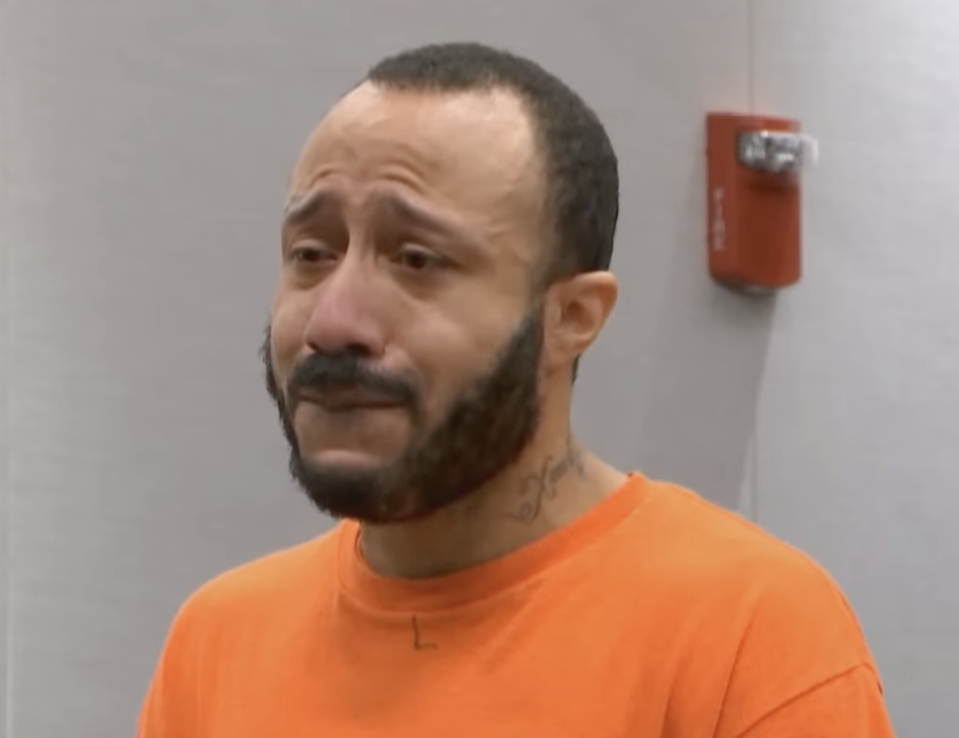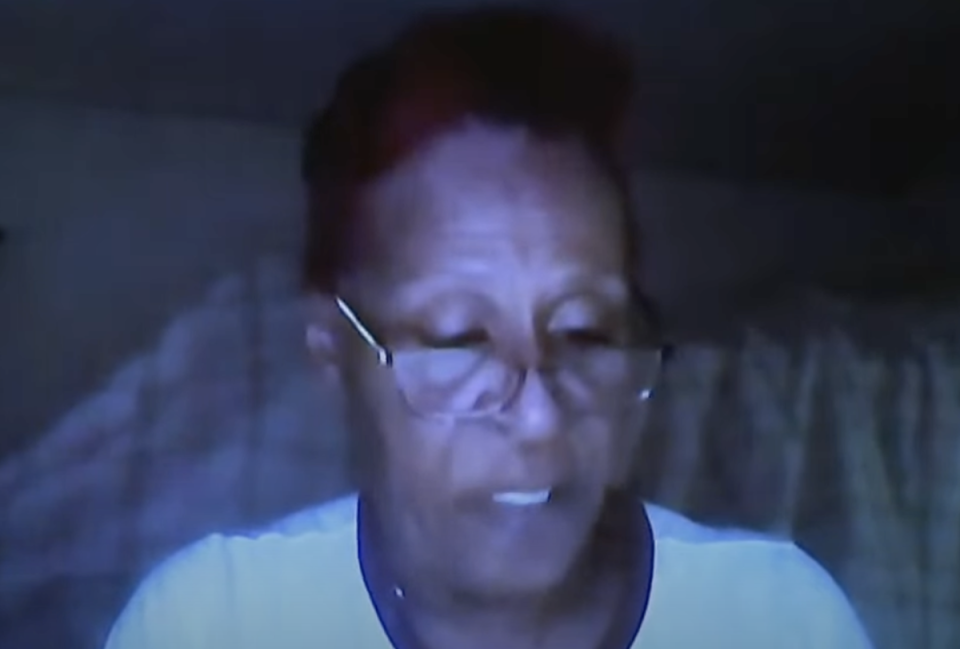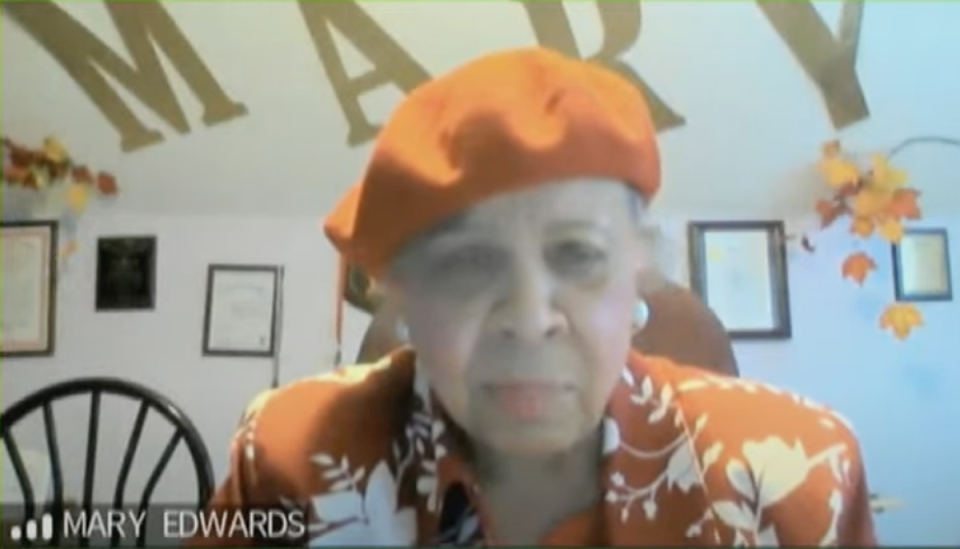Waukesha parade killer Darrell Brooks jailed for life after repeatedly disrupting sentencing hearing
Wisconsin Christmas parade killer Darrell Brooks Jr offered a rambling and convoluted apology in court before being sentenced to life behind bars.
Waukesha County Circuit Judge Jennifer Dorow handed Brooks, 40, six life sentences for first-degree intentional homicide, on Wednesday afternoon.
The families in the courtroom applauded as the judge read out each of the victims’ names and handed down a life sentence for each.
He was also given 17 and a half years for each of his 61 counts of recklessly endangering safety, for more than 761 years in prison. The judge then read out the name of every victim, this time in a silent courtroom.
Brooks also received an additional six years and nine months for his bail jumping and misdemeanour battery charges.
Last month, Brooks was convicted on all 76 charges for driving his red Ford Escape through the Christmas parade in Waukesha on 21 November 2021. Six people, including an eight-year-old, were killed and more than 60 others were injured after Brooks struck them with his vehicle.
“This trial is unlike anything I’ve ever been part of the, the sheer magnitude of the crime,” the judge said as she slammed the “vicious and senseless nature of it.”
“I hope that this will be justice and closure for the families and community at large. The seriousness of the offence can be summed up frankly in one word, and that is attack. There is nothing, no other word that can best describe what happened on November 21 of 2021, than attack.”
And she added: “I searched for a mitigating factor in this case, I waited patiently for a true apology, I did not get it and not for my benefit but for the victims.”
She later told the previously convicted sex offender: “You have absolutely no remorse for anything you do, and you have no empathy for anyone.”
“it is clear to this court that Mr Brooks has caused carnage and mayhem. you have taken away from these individuals’ future memories, they will never have birthdays with those killed, no weddings, no graduations, none of the milestones these families were looking forward to. Frankly, Mr Brooks no one is safe from you unless you are behind bars,” she said.
Brooks delayed the proceeding by offering a plethora of excuses as to why he chose to plough into the crowd last year. He eventually charged at the prosecution and challenged Ms Dorow to remove him from the court after she threatened to do so when he wouldn’t behave.
Before receiving his sentence from another room in the court, Brooks hinted at a glimpse of remorse but ultimately dodged taking accountability for his crimes.
Instead, he derailed the sentencing with a two-hour-long monologue in which he mentioned that he had “converted his life to Christ.”
“I want those who lost loved ones [..] the community of Waukesha to know that not only am I sorry for what happened,” Brooks began. “I am sorry that you cannot see what’s truly in my heart, that you cannot see the remorse that I have [and] that you cannot count all the tears that I’ve dropped.”
“That’s a question I struggle with myself. The why, the how. How could life get so far away from what it should be?” he said. “Regardless of what anybody might think about me, about who I am, about my family, about my beliefs. God knows who I am.”
Brooks further attempted to rationalise his actions, saying he had faced great challenges such as being abandoned by his father, “seeing his mom work three jobs,” and losing his sister.
He denied having planned the attack and emphasised that it “was not an attack.” Brooks also charged at District Attorney Sue Opper, claiming she lacked integrity but saying that he was going to “take the high road” and “not call her by anything other than her God-given name.”
“You said 31 years, that you’ve done this. Thirty-one years. I don’t believe you are that bright,” he said.

Three people spoke on Brook’s behalf, including his mother Dawn Woods, who asked the court for compassion, saying her son is mentally ill and did not receive the help he needed throughout his life.
“Yes, I agree there should be some accountability to actions, but we must also render help,” Ms Woods said over Zoom, before sharing Maya Angelou’s poem I Know Why the Caged Bird Sings.
“Treatment, therapy, medication, hospitals and institutions that specialize in the treatment of those who suffer mental illnesses must be offered.”
Brooks, who notably remained calm and composed during victim impact statements — except for when he rolled his eyes in boredom and shook his head as loved ones shared their grief —, became evidently emotional after hearing his mother speak.
Meanwhile, Brook’s grandmother, Mary Edwards, offered her condolences to the families of the victims and appealed that Brooks’ Bipolar Disorder, which he was diagnosed with at the age of 12, was what “caused” his actions.
Brooks’ longtime friend Michelle Allworth also said that he had “shared with [her] multiple times how remorseful he truly is.”


The sentencing on Wednesday follows a month-long trial marked by outbursts from Brooks — who chose to represent himself despite having no legal training — and harrowing moments when the victims were forced to face their own attacker during cross-examinations.
Brooks’ often pushed Judge Dorows’ limits, repeatedly questioned her directions and had to be removed from the court on several occasions, including one hearing in which he took his prison shirt off and sat on the defence table bare-chested.
Relatives of victims shared their anguish and recounted the moments of terror after Brooks ploughed into the crowd in a zig-zag pattern at a speed of 40mph.
Forty-five people, including nine children, requested to speak in court.
Among the children giving victim impact statements was Brooke Sorenson, whose grandmother Virginia Sorenson was killed during the attack.
“Darrell Brooks, you took my granny from me, from my sister and from my family,” Brooke told the court on Wednesday. “Granny, I will see you in my dreams and I know you will be watching over me.”
Just a day earlier, David Sorenson, Sorenson’s husband, gave a riveting statement as he wore a sweater that read ‘Dancing Grannies,” the name of the award-winning group that performed at the parade and lost four of its members.
“When it thunders, I imagine that Jackson is blasting a home run over the fence. When there is a rainbow, I will imagine the Dancing Grannies — Ginny, Tammy, Lee and Bill — with them dancing along its lines,” the widower said.
He continued: “When there is a ray of sunshine poking through the clouds, I will imagine it is Jane smiling down on us. When it snows, like it did this morning, I will imagine God’s love giving us a blanket in comfort. When I see a blue light, I see this community’s commitment to helping to heal and support each other.”
Sherri Sparks, whose eight-year-old son was struck down and killed by Brooks, said that her surviving son had to deal with PTSD, anxiety, migraines, memory issues and survivor’s guilt after losing his little brother.
“I want to give a voice to our son Jackson Sparks, our family is forever changed. We are hurt, angry, traumatised and broke,” Ms Sparks told the court. “November 21, [2021], was a day that was supposed to be fun and filled with laughter and smiles and instead, it became a nightmare full of fears, screams and tears.”
Ms Sparks recounted frantically rushing to her sons, who were in the parade with their baseball team, when she heard “the car hitting bodies and the thud of bodies landing on the ground.” She found Jackson in the arms of a police officer waiting for medical attention.
“You have no idea how gutwrenching it is to explain to your 12-year-old son that his little brother is not going to make it,” Ms Sparks said as she choked back tears. “Being a protective brother, Tucker blamed himself, he felt he should have done more in order to protect Jackson. It broke my heart to hear him say those things.”
The son of Dancing Granny Lee Owen did not mince words and called Brooks a “monster” and a “demon.”
“You have the audacity to say your conscience is clear. That is why you hear the term monster, demon,” Chris Owen said. “All I can ask is that you rot, and you rot slow.”

